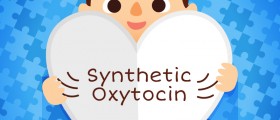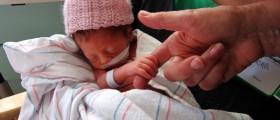
Down Syndrome In Teenagers
Down Syndrome is a genetically inherited disorder characterized by additional genetic material that hinders development. Down syndrome is the most prevalent genetic disorder present right at birth and it affects about 1 in 1000 newborn in America every year. Children and teenagers affected by Down syndrome exhibit various symptoms and medical complications but the most common ones include a small face, short torso, small ears, flat facial profiles, long tongues, and an overall low muscle tone. Due to many physical and mental abnormalities children and teenagers with Down syndrome develop at a different pace compared to their healthy counterparts. Individuals with the disorders grow slowly and experience different digestive problems. Older children have difficulties with performing everyday tasks such as dressing, feeding, and grooming. Individuals with Down syndrome are intellectually impaired to a certain extent. It is difficult to estimate the extent of both physical and mental disabilities that the child will suffer at birth. Some individuals live relatively healthy lives while others require long term medical care. Down syndrome patients are able to acquire new skills and knowledge throughout life and with adequate care and attention can reach their full potential, regardless of how limited that potential may seem. In addition, there is no way to prevent Down syndrome but genetic counseling is available to screen for the disorder and give prospective parents the opportunity to terminate the pregnancy or prepare for raising a child with special needs.
Causes of Down Syndrome
At the time of conception the embryo inherits 46 chromosomes, 23 from the mother and 23 from the father. In the case of Down syndrome the child inherits either a whole additional chromosome 21 or extra information from the same chromosome. The exact causes of passing down more chromosomes than normal are unknown but the triggers for such occurrences have been identified. For instance, women over 35 are at a greater risk of having children with Down syndrome. The older the woman is the higher the possibility of abnormal conception.
Social Development With Down Syndrome
Social development includes a wide range of abilities such as forming friendships, being able to play alone or with someone, possessing interpersonal skills, and behaving in socially acceptable ways. Social development largely depends on interactions with other individuals in the community. Being able to communicate one’s needs and wishes effectively is very important in the life of any individual. Persons with Down syndrome are able to understand facial expressions and emotions. As most communication is done non-verbally they are able to comprehend the situation and react in appropriate ways even when their language abilities are limited. It should be noted that people affected by Down syndrome are more socially competent than individuals who are cognitively on the similar level. At the same time children with Down syndrome are very skilled at misbehaving, as they know how to elicit exactly the reaction they want. As is the case with any other group of people, the social skills among the persons with Down syndrome vary greatly and develop at different pace. Further, development in general is strongly influenced by environmental factors such as family structure, temperament, as well as school and community experiences, making every person different. In the case of Down syndrome people, their social development is in many cases affected by one of many underlying medical conditions that usually accompany their disorder. Some of the most common health issues include congenital heart defects, weak immune systems, breathing problems, and gastrointestinal disorders. In addition, parents and caregivers play a substantial role in the social development of their children. Depending on the compatibility between the child’s and the parents’ temperaments the caregivers will be more or less able to deal with the child. They will influence each other constantly and affect character development of the child. As far as the Down syndrome child is concerned, his or her personality will in large part determine their social competencies. If the child is timid and shy to begin with it is highly likely that their social skills will be underdeveloped compared to someone who is curious and likes to explore new situations. Research has shown that the range of different personalities among Down syndrome individuals is the same as that among the normally developing population.
Parents With Down Syndrome Children
For most individuals it is very difficult to accept the fact that their child is affected by a genetic disorder. The feelings of grief and shock can be overcome in various support groups that strive to help people deal with particularly challenging situations. Once the child is born it is advised that he or she is enrolled in early intervention programs where occupational, physical, and speech therapists will start educating the child at a pace that they can follow. In many states early intervention is free up until the age of 3.

















Your thoughts on this
Loading...